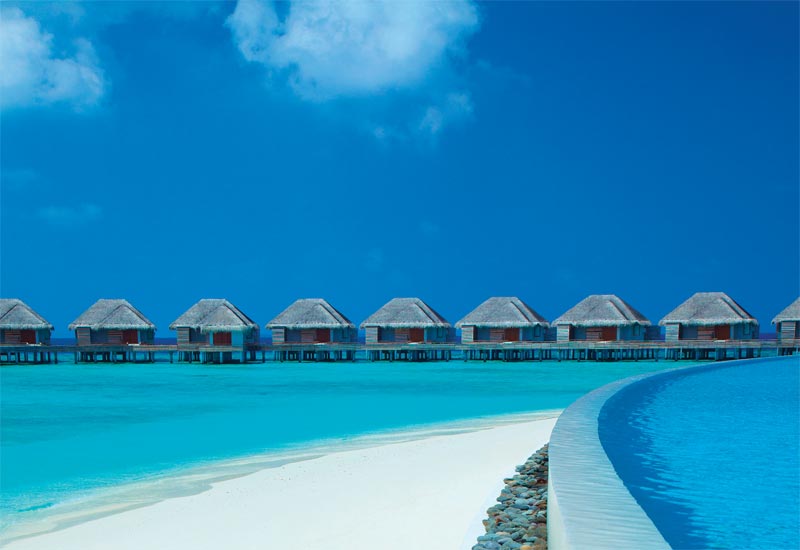“It was already in progress,” recalls Kobos. “We influenced what we could at that stage in terms of some of the interiors, the work flows, the restaurants; there was only a limited time that we were able to play with.
“It’s probably the record [pre-opening] in the Maldives because every project, due to the complexity here in the Maldives to do business, really is very unique,” he says, referring to the logistics challenges and the need for resorts to be self-sufficient.
“Everything has to come from the mainland, if you go into the back of house, its frankly self-sustained, from bottling plants to waste management to the generator room — huge money was spent in those areas because that will sustain us over time,” he says.

| Advertisement |
Of what Dusit could influence, the main element was the restaurants, with the chain’s signature Thai restaurant Benjarong occupying the space underneath Sala Bar, with views out across the Indian Ocean.
“We can say that it will be aiming to be the best Thai restaurant in Maldives, we are a Thai company, there is a Thai company across the bay [Anantara] but we still believe we have that understanding [of Thai cuisine],” asserts Kobos.
Benjarong is one of the hotel’s key points of difference, along with its 750m² infinity pool — the largest in Maldives; its tree top Deverana spa — unique to Maldives; room options to suit different budgets and nationalities, from beach villas to the quintessentially Maldivian over-water ocean villas; and a 360˚ house reef, located in the first UNESCO World Biosphere Reserve in the country. “It’s sustainable tourism,” Kobos says of the reef. “That’s really what draws people and interests them.”
The hotel has recruited a passionate young marine biologist Lauren Arthur to educate guests about the reef; Kobos says it is not forced upon people but that it is a key part of the experience, with turtles and manta rays among the reef’s inhabitants.
Arthur’s role is also vital in helping educate the staff about their home, encouraging them to take pride in their precious surroundings.
“We have strict environmental guidelines and the whole operation has to adjust itself in terms of the processes; staff and employees have to learn and become very conscious of the environment, of the [impact of their] fairly routine habits when they come from the cities.
We run classes for the staff, they go with Lauren to get introductions and explanations — once you get more of an understanding of your environment you come to accept it easier, otherwise you sit on an island and start to get island fever,” says Kobos.
I was one of the first guests to visit Dusit Thani Maldives and the focus now is on getting all of the 100 villas open and spreading the word that the hotel is open. But Maldives remains a major luxury destination, and despite numerous openings this year alone — including Dubai’s Jumeirah and US chain Viceroy — Kobos says demand is more than enough to meet supply.
“It’s like if you throw a sponge in that water there,” he says when I ask about demand levels, pointing down at the crystal clear turquoise ocean. “When the season comes, boom, everybody’s full.”
Article continues on next page ...









 Search our database of more than 2,700 industry companies
Search our database of more than 2,700 industry companies









